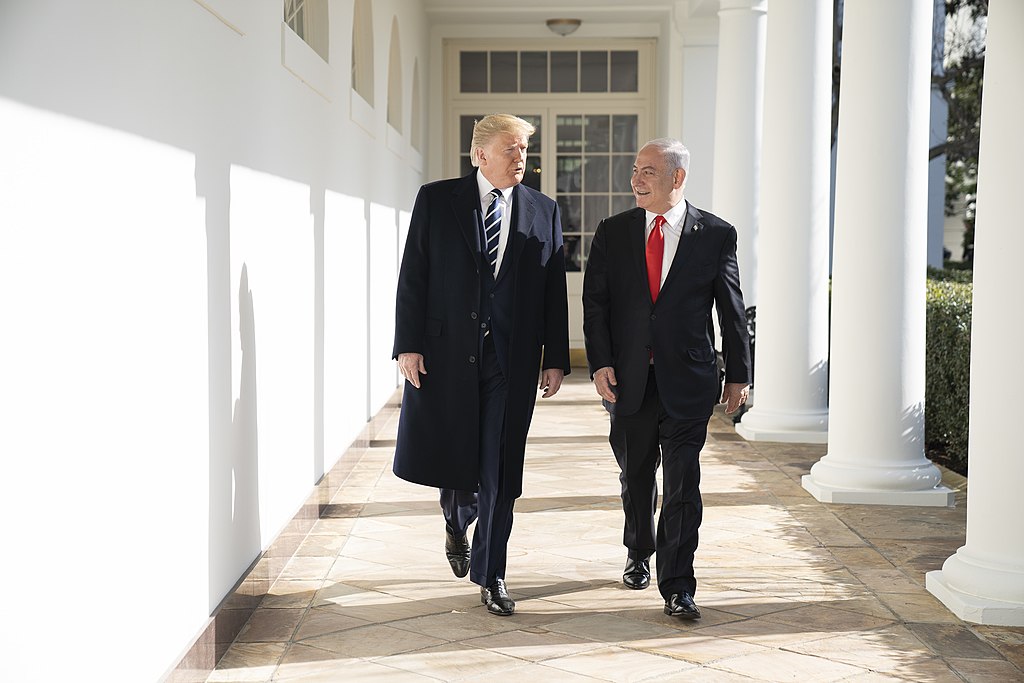U.S. President Donald Trump has brokered a ceasefire between Israel and Iran following a weekend of escalating military conflict. The agreement was reached after high-level talks with Israeli Prime Minister Benjamin Netanyahu and indirect negotiations with Tehran led by Vice President JD Vance, Secretary of State Marco Rubio, and U.S. special envoy Steve Witkoff, according to a senior White House official.
The ceasefire, which Trump said would take effect within hours, requires Iran to halt further attacks. In return, Israel agreed to pause military actions. The breakthrough came shortly after Iran launched missile strikes on a U.S. air base—causing no casualties—in retaliation for American airstrikes that targeted Iran’s underground nuclear facilities with 30,000-pound bunker-busters.
Trump reportedly initiated the diplomatic push on Saturday night, instructing his team to re-engage with Iranian officials and reach out to Netanyahu with the goal of securing peace. Although the U.S. had held five previous rounds of negotiations with Iran in recent weeks, talks had stalled over Iran’s refusal to stop uranium enrichment.
Trump's decision to bomb Iranian nuclear facilities marked a dramatic shift from his long-standing promise to avoid U.S. military entanglement abroad. The military action raised concerns among his “America First” base, which values non-interventionism. However, the ceasefire may now help Trump reframe himself as a peacemaker, reinforcing his leadership narrative as he weighs further foreign policy moves.
The agreement capped a tense day of diplomacy, with Trump conducting negotiations from the Oval Office and emphasizing U.S. interests. Netanyahu, a consistent advocate for stronger U.S. support, was reportedly receptive to Trump’s initiative. The White House believes the ceasefire could stabilize the region—if Iran holds back from future aggression.



 China Cracks Down on Fentanyl Precursors Amid U.S. Trade Pressure
China Cracks Down on Fentanyl Precursors Amid U.S. Trade Pressure  White House Seeks to Cut Global War Crimes Accountability Programs
White House Seeks to Cut Global War Crimes Accountability Programs  U.S., Pakistan Discuss Israel-Iran Peace After Trump-Brokered Ceasefire
U.S., Pakistan Discuss Israel-Iran Peace After Trump-Brokered Ceasefire  U.S. Approves $30M Gaza Aid Amid Controversy Over Humanitarian Foundation
U.S. Approves $30M Gaza Aid Amid Controversy Over Humanitarian Foundation  Singapore Delays Trial in Nvidia AI Chip Smuggling Case Tied to China
Singapore Delays Trial in Nvidia AI Chip Smuggling Case Tied to China  AFSA Urges State Department to Halt Mass Layoffs Amid Legal Battle
AFSA Urges State Department to Halt Mass Layoffs Amid Legal Battle  Harvard Subpoenaed by U.S. House Over Tuition and Financial Aid Practices
Harvard Subpoenaed by U.S. House Over Tuition and Financial Aid Practices  Japan Denies Fentanyl Trafficking Amid China Smuggling Allegations
Japan Denies Fentanyl Trafficking Amid China Smuggling Allegations  EU Considers All Options as US Tariff Deadline Nears
EU Considers All Options as US Tariff Deadline Nears  EU Eyes Quick Trade Deal with U.S. as Tariff Deadline Looms
EU Eyes Quick Trade Deal with U.S. as Tariff Deadline Looms  India Rejects UN Help in Air India Crash Probe Amid Black Box Concerns
India Rejects UN Help in Air India Crash Probe Amid Black Box Concerns  U.S. Treasury Extends Debt Ceiling Measures to July 24 Amid Default Concerns
U.S. Treasury Extends Debt Ceiling Measures to July 24 Amid Default Concerns  Thailand to Hold Key U.S. Trade Talks Ahead of Looming Tariff Deadline
Thailand to Hold Key U.S. Trade Talks Ahead of Looming Tariff Deadline  Mexico Seizes Control of Sanctioned Banks Amid U.S. Money Laundering Allegations
Mexico Seizes Control of Sanctioned Banks Amid U.S. Money Laundering Allegations  Taiwan Imposes Anti-Dumping Duties on Chinese Beer and Steel Imports
Taiwan Imposes Anti-Dumping Duties on Chinese Beer and Steel Imports  Rubio to Host Quad Meeting Amid Indo-Pacific Tensions and Alliance Strains
Rubio to Host Quad Meeting Amid Indo-Pacific Tensions and Alliance Strains 































